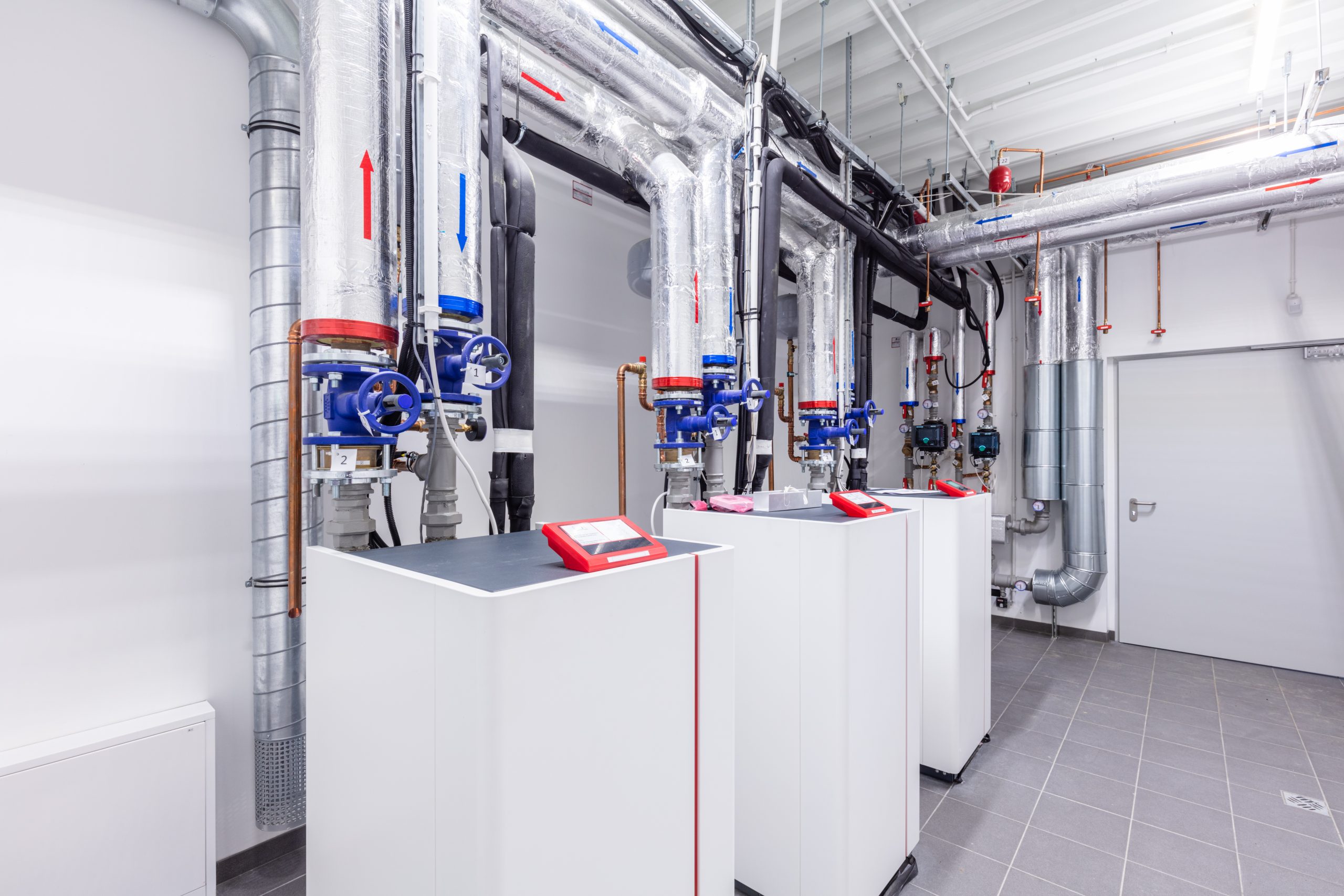Low Carbon Heating
Your renewable heating system will offer considerable reductions in carbon usage, driving you towards your Net-Zero goals. Gas boilers are typically around 90% efficient and use a fuel that has a grid emission factor of 210g/kWh. So, for every 1kW of heat provided, they produce around 230g of CO2. Compare that to a heat pump which, if designed correctly, works with an efficiency upwards of 300%, using electricity as the fuel, which currently has a grid emission factor of 136g/kWh (which will only reduce as the grid becomes greener). For every 1kW of heat provided, a heat pump will produce around 45g of CO2. That’s an 80% reduction in carbon!!!
Why is Low Carbon Heating important?
Heating is in fact THE UK’S BIGGEST SOURCE OF CARBON EMISSIONS, accounting for about 37% when including industrial processes. If we want to meet our Net Zero Carbon Emission Target by 2050, decarbonising this heat is going to be key.
This 37% can be broken down as follows:
Roughly 13-14% of the 17% of carbon emissions used to heat and cool buildings can be linked to domestic homes.
Hot water is typically required in the hospitality, health, emergency services and education sectors, where there is a high demand for washing facilities.
Decarbonising heat is quite often the biggest challenge for any organisation. Some of the main reasons are as follows:
The Scale of the Challenge
The UK building network is currently heavily reliant on the gas network. To put it into context, only 5% of homes currently have low carbon heating, with around 24.5 million homes heated by natural gas.
Net Zero Targets
The UK plan to reduce carbon emissions to Net Zero by 2050 will be reliant on certain sectors which are hard to decarbonise offsetting their carbon. This will mean other areas that are able to decarbonise, such as buildings will have to become carbon neutral, to balance the UK’s carbon.
Poor Building Fabric
Our existing building stock in both domestic and non-domestic areas have traditionally poor thermal efficiency. The golden rule for decarbonising any heating project is to adopt a fabric first approach. There’s no point providing lower grade heat from an efficient heat pump system if it’s leaving the building through poorly insulated walls, ceilings, doors, and windows.
There’s No Single Solution for Every Building
Gas boilers can be applied to most buildings. You cannot fault the practicality of the technology, and how it’s revolutionised heating our buildings in the UK. We also can’t ignore the fact that the fuel they use isn’t sustainable, contributes to climate change, and is the cause of political conflict. We must adopt lower-carbon fuels such as electricity and hydrogen. Both technologies will have their place in the future of heating our buildings, but they will need to be chosen based on the application they are being considered for.
Workforce
At present for every 100 qualified gas engineers in the UK, there are only 2 low carbon heating engineers. This is a major issue.
Incentives
Current incentives don’t encourage people or businesses to make the switch to low carbon alternatives. Low carbon heating products are more expensive than fossil fuel alternatives, including the fuel they use, so they must rely on the improvements in efficiency to justify the change through lower running costs. There is a lack of commercial incentives in the private sector to help justify these changes beyond using a cleaner fuel and reducing carbon, but it’s clear they will come in time.

